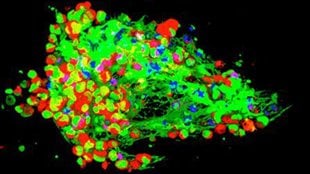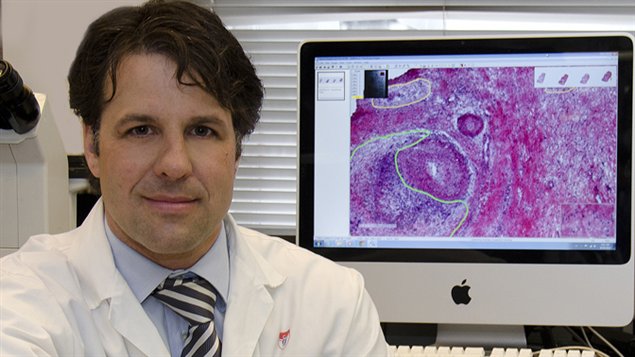The body’s own defences against infection might activate cancer cells and facilitate their spread to secondary tumours, researchers at McGill University have discovered. The study, published today in the Journal of Clinical Investigation, has significant implications for the diagnosis and treatment of cancer.
Cancers often came back when patients get infections around the time of their operations and that was noticed by Dr. Lorenzo Ferri, senior author of the study and director of thoracic surgery at the McGill University Health Centre. Other doctors around the world noticed the same thing.
Testing in both mice and cultured cells showed there was indeed a relationship between infection, a white blood cell response and metastasis or spread of cancer. A web-like network called Neutrophils Extracellular Traps or NETs is produced by white blood cells (neutrophils) in response to an infection. It normally traps and kills invading pathogens like bacteria.

developed by white blood cells (in blue).
© : Dr. Lorenzo Ferri, Dr. Johatna Cools-Lartigue
McGill University Health Centre
“Very significant” finding
Researchers found the neutrophil web also trapped circulating cancer cells. Instead of killing the cancer cells, the webs activated the cancer cells and made them more likely to develop secondary tumours. This was the case in several types of cancer including lung, stomach, colon and melanoma.
“To me it’s very significant,” said Ferri. “It shows an entirely novel way or mechanism by which cancer cells can attach to different organs…It give us a new target for us to treat cancer spreading.”
Tests need to confirm that the results will be the same in humans as they were in the experiment which used mice and human tissue. Scientists need to find out more about how the mechanism works and which patients are more at risk for this kind of spread of cancer.
Another piece of good news is that there already exists a safe drug which can break down the neutrophil web. Mice who received it, got less tumour growth and spread of cancer.
Scientists will need to find a way to balance the need for the neutrophilweb to fight infection in a patient and the need to suppress it so that it doesn’t help spread the cancer.







For reasons beyond our control, and for an undetermined period of time, our comment section is now closed. However, our social networks remain open to your contributions.